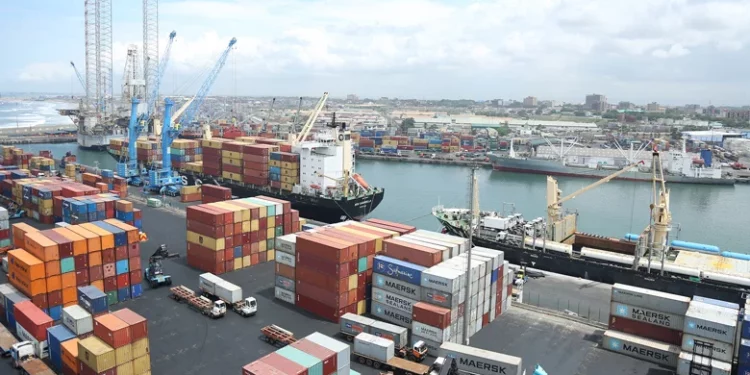Trade rules and climate change: Africa stands to lose from proposed WTO policy tools
What are the WTO’s new Trade Policy Tools?
The new tools offer opportunities for countries to mitigate the climate change effect of their trade practices. The tools align with the Paris Agreement, the 2015 legally binding United Nations Treaty on Climate Change.
But the global contribution of African states to climate change remains very low: 4%. African states’ contribution to global trade stands at 3%. There are socio-economic inequalities between African states and their western counterparts. The wider historical context of these inequalities means that the WTO’s Trade Policy Tools for Climate Action will have different impacts on developing and developed countries.
Notwithstanding Africa’s low contribution to global trade and climate change, the new tools offer some avenues for African countries to take modest climate action. There are trade facilitation measures that can improve infrastructure, information and communications technology, the business environment, and border and transport efficiency. This will reduce energy consumption and greenhouse emissions from freight transport.
What difference can green government procurement policies make?
Green government procurement policies refer to decisions by governments to buy environmentally sustainable materials, supplies and services. These policies also look at the present and future impacts of purchases based on their consumption and eventual end-of-life stage.
The impact of green government procurement is yet to be seen in developing countries like those in Africa. Generally speaking, these policies spur innovation and result in improved employee health and safety. They also reduce greenhouse gas emissions, hazardous and toxic substances, plastic waste and pollution.
The new tools say tariffs must be reduced on green products. Won’t this mean that low-cost, imported green energy components will flood into Africa, and undermine local manufacturing?
Trade-related changes are required to address the climate change deficits of international trade. But those changes should not jeopardise African economies. The new tools raise three important concerns.
First, if most imported elements of green energy systems are imported, African states may become dependent on these components. The new tools promise to optimise innovation around green technologies. But lowering tariffs on imported green energy goods may undermine the development of new green technology manufacturing companies in Africa.
A handful of African countries such as South Africa and Kenya may be able to set up companies to manufacture these imported elements. But they will not be able to compete with their foreign partners, who are more adept in producing and exporting the materials at cheaper rates.
Second, the pivot to importing low-cost imported components of green energy perpetuates Africa’s poor status as a raw material generating region only. It reduces Africa’s capacity to take advantage of the global value chains connected to critical raw materials being used in the energy transition. Unsustainable exploration and mining of critical raw materials further damages the environment in many African countries. This deepens Africa’s vulnerability to climate change.
Third, debates about green transition in the trade context are inextricably linked with debt exposure and the capacity of African states to attract climate friendly investments. Without increasing their net trading quota contribution, African states have a much smaller chance of building a green industrial base for a greener future.
But all is not lost. This is a moment of renewed industrial policy in international trade. African states have the opportunity to re-orient their national industrial policies to take advantage of the moment. They can aim to attract investments that will allow them increase their global trade quota by prioritising green industrial development projects.
African countries can also connect their new policies with opportunities that the African Continental Free Trade Area Agreement offers in greening their trade projects.
The new tools propose removing government subsidies from fossil fuel industries and redirecting them to renewable energy. Isn’t this a good thing?
Unlike their western counterparts, many African states are heavily dependent on fossil fuel investments. Oil and gas, for example, are often the primary source of their foreign exchange earnings. These fossil fuels are also resources used to generate economic growth and development.
For these African countries, redirecting subsidies from fossil fuel industries to renewable energy may not provide an apparent advantage. A period of transition may allow for such redirection. For developing countries it will need to be a long period. African countries who receive subsidies to invest in renewable energy may be hampered by the poor state of physical infrastructure in their countries.
They will also face competition from rich countries, and the high cost of investment and generating renewable energy products in Africa. To be a truly winning idea for developing countries, the historical and contemporary social, economic, political and financial challenges of African countries must be taken into account.
Overall, the new policy tools offer modest ways that African countries can change some of their trade practices to address climate change mitigation and adaptation goals. Other frameworks such as the Villars Framework for a Sustainable Global System offer pathways to addressing climate change and transition to a climate-friendly global economy.
Yet, without taking advantage of the renewed industrial policy era to re-envision how critical raw materials and other resources can be harnessed and developed in Africa, the continent stands to lose more.








